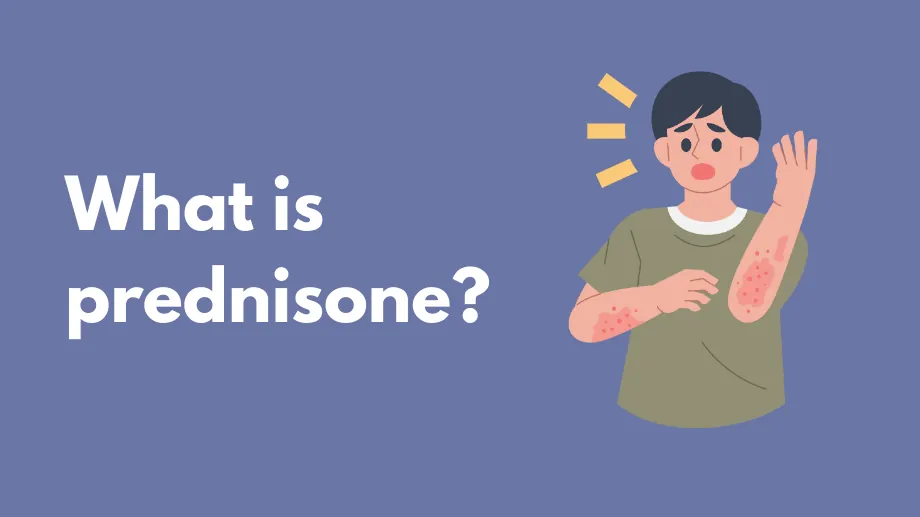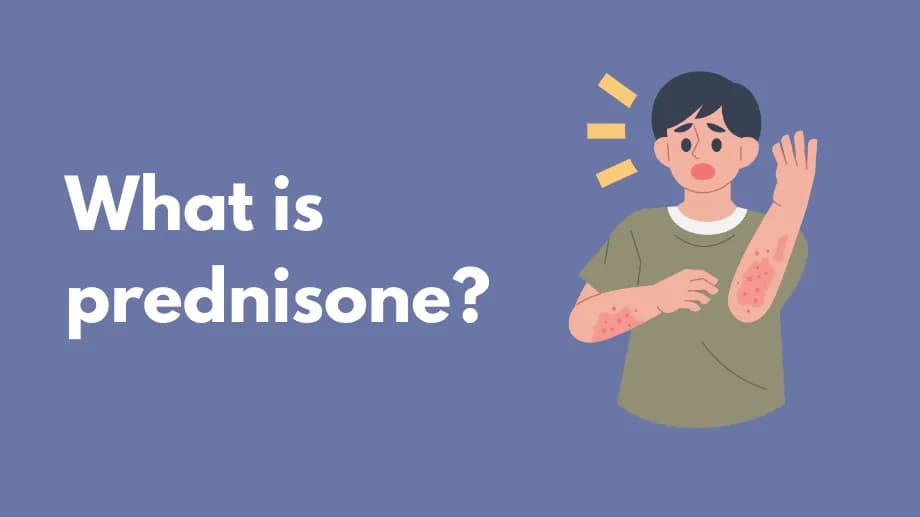What is prednisone?

Prednisone is a common corticosteroid used to treat inflammatory conditions and autoimmune disorders, such as allergic reactions, lupus, leukemia, multiple sclerosis, ulcerative colitis, rheumatoid arthritis, blood or bone marrow disorders, endocrine problems, and skin rashes. It is the generic form of brand names like Deltasone, Predone, Sterapred, and Sterapred DS.
The dose of prednisone varies widely depending on the condition. Do not stop taking prednisone without consulting your healthcare provider. Doses are typically tapered to avoid withdrawal symptoms such as mood changes, fatigue, and muscle or joint pain.
How does prednisone work?
Prednisone is a glucocorticoid, a type of corticosteroid. It mimics cortisol, a hormone released by the adrenal glands in response to stress and inflammation. Prednisone is about four times more potent than cortisol at reducing inflammation by calming the immune system.
Side effects of prednisone
Common side effects, especially at high doses (40 mg/day or more) or long-term use, include:
- Insomnia
- Mood changes
- Muscle weakness
- Fluid retention
- Increased appetite and weight gain
- Nausea and stomach pain
- Bloating
- Headache and dizziness
- High blood sugar and high blood pressure
Shop Medications
Serious side effects requiring immediate attention include:
- Increased risk of infections (avoid exposure to measles or chickenpox)
- Eye problems (glaucoma, cataracts; symptoms: blurred vision, eye pain)
- Severe depression or mood swings
- Bone problems (osteoporosis, loss of calcium)
- Adrenal insufficiency (symptoms: nausea, fatigue, low blood pressure)
- Cushing’s syndrome (fat redistribution, stretch marks, thin skin)
- Allergic reactions (itching, hives, facial swelling, shortness of breath)
- Stomach bleeding (bloody or black stools, vomiting blood)
Who should not take prednisone?
Do not take prednisone if you have an untreated serious infection or known hypersensitivity. Avoid vaccines while on prednisone without provider approval. Inform your provider if you have:
- Cushing’s syndrome or adrenal gland problems
- Heart failure or prior heart attack
- Diabetes or hypertension
- Glaucoma or cataracts
- Infections (bacterial, viral, fungal)
- History of depression
- Myasthenia gravis
- Osteoporosis
- Gastrointestinal ulcers or inflammatory bowel disease
- Thyroid problems or tuberculosis
- Pregnancy or breastfeeding
Also share all medications, supplements, and vitamins with your provider. Common interactions include NSAIDs, certain antibiotics, HIV medications, immunosuppressants, diuretics, and anticoagulants.
Takeaway
Prednisone is an effective corticosteroid for many inflammatory and autoimmune conditions. Take it exactly as prescribed and do not stop abruptly to avoid serious complications. Consult your healthcare provider with any questions.

